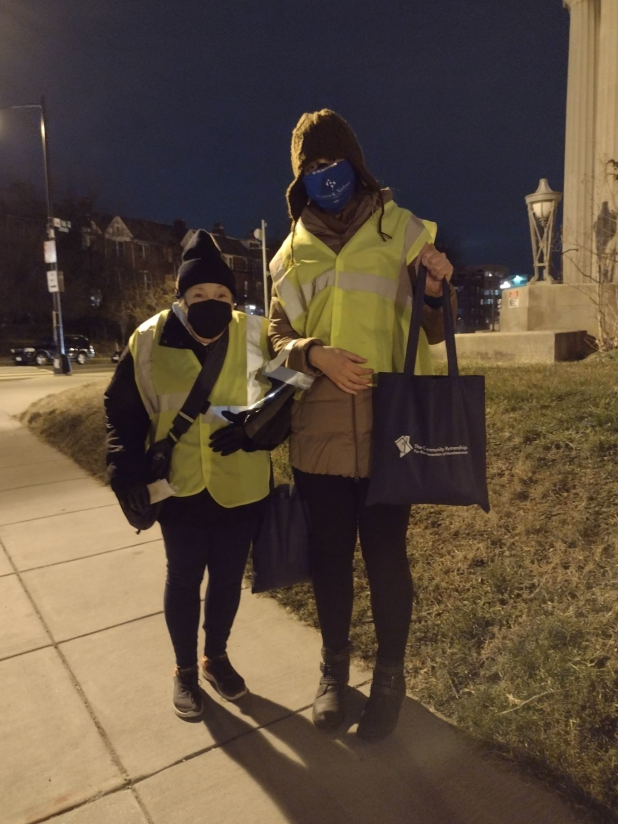Council Updates
Street Vending
Last week, I reintroduced two bills. Both bills were initially introduced last year, but because December marked the end of a Council Period and the bills had not gone through the legislative process, they had to be re-introduced.
The first bill is the Street Vending Decriminalization Amendment Act, to remove criminal penalties for vending, which will minimize unnecessary interactions between police and vendors. Violations would still be enforced through DCRA. The second bill goes hand in hand with decriminalizing street vending. It is the Sidewalk Vending Zones Amendment Act. This bill amends the Vending Regulations Act of 2009 to establish sidewalk vending zones for sidewalk vendors to legally operate, reforms the enforcement response, and launches the first designated zone in Columbia Heights.
Protecting Workers
This week, I co-introduced the Workplace Safety During the COVID-19 Pandemic Emergency Act, which strengthens protections and rights for District workers during the pandemic. This legislation was introduced by At-Large Councilmember Elissa Silverman.
Mayoral Overrides
The Council voted to override the mayoral veto of the Office of the Ombudsperson for Children Establishment Amendment Act. I introduced this bill to establish an independent legislative agency tasked with improving outcomes for children involved in the child welfare system by holding all agencies that impact these children accountable for fulfilling their responsibilities under the law. The legislation aligns with national best practices as prescribed by the US Ombudsman Association’s model statute.
The three main arguments raised by the Mayor were that it was: (1) legally insufficient because it may, as applied, raise a separation of powers issue (2) the office would be duplicative and (3) it is unnecessarily expensive.
My counterarguments were: (1) My office worked very closely with our General Counsel’s office to ensure it was legally sufficient and that no powers afforded to or duties required of the Ombudsperson would unduly interfere with the executive. (2) The office created by this legislation is not intended to duplicate the existing office, but instead to improve and replace it by prioritizing independence and impartiality to increase its credibility and expanding the office’s scope to provide oversight of systemic issues, including special attention to matters affecting crossover youth - children who interact with both the foster care system and the juvenile justice system. (3) Yes. The expanded scope of the office comes with additional costs but it pales in comparison to the annual costs of paying a court monitor to oversee the agency + not to mention the potential liability and devastating human costs that could be incurred if a child in the District’s care were to be harmed.
The Council also voted to override a mayoral veto for the Department of Buildings Establishment Act, which splits up the Department of Consumer and Regulatory Affairs into two agencies. This bill has been discussed since 2018. It became very clear to Councilmembers that DCRA was too large to be properly managed. Hundreds of residents would testify at DCRA oversight hearings. By splitting up the agency into two, we are hoping to see more focused and effective city services.
Human Services
The District recently conducted the annual homeless Point-in-Time (PIT) count. The count helps us further understand how we can best serve those most in need. The data will also be crucial for COVID-19 recovery efforts. I want to thank the volunteers and outreach workers that conducted the count, including our office’s Deputy Director of Constituent Services, Allie Bobak!

[pictured: Ann Hoffman and Allie Bobak]
You can read more about the PIT count in an article from DCist here.
|